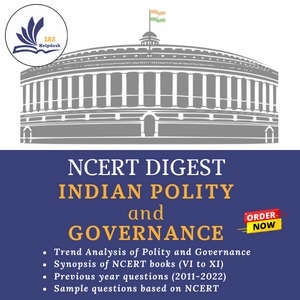Vivad se Vishwas II Scheme
Description
Vivad se Vishwas II Scheme: Fast-tracking Contractual
Dispute Resolution
Description: Explore how the Vivad se Vishwas II Scheme aims to expedite contract dispute resolution, save costs, and promote a smoother business environment. Learn about its impact, challenges, and future prospects.
Introduction
Arbitration is a mechanism
to resolve disputes between parties without having to initiate a case in court.
- The scheme aims to settle contractual disputes involving the
government and its undertakings where an arbitral award is under challenge
in a court. It offers a voluntary settlement process with
standardized terms and provides graded settlement terms based on the level
of pendency of the disputes.
- To be eligible for consideration under the settlement scheme, the
aggrieved party should have secured an arbitral award by January 31, 2023,
and the cut-off date for court orders is April 30.
- The scheme applies to all domestic contractual disputes
where one of the parties is either the Government of India or an
organization under its control.
- The scheme aims to expedite the resolution of contractual disputes
and promote a smoother business environment for vendors and suppliers
dealing with the government and its undertakings. The deadline for firms
to submit their claims for consideration is October 31.
About
- Contractual disputes are disputes between the parties to any
contract regarding any clause of the contract. They may arise due to
various reasons, such as breach of contract, non-performance, delay, force
majeure, frustration of contract, etc.
Impact
- Legal Costs: Resolving contractual disputes often involves legal proceedings, leading to substantial legal costs for the parties. These costs can include fees for lawyers, arbitrators, mediators, experts, and courts.
- Delay in Project Completion: Disputes can cause delays in project completion, affecting timelines, and potentially leading to cost overruns. Delays can also impact the quality and performance of the project deliverables, as well as the satisfaction of the end-users and stakeholders.
- Financial Loss: Contractual disputes can result in financial losses for one or more parties, especially if payments are withheld or if penalties and damages are awarded. Financial losses can affect the cash flow and profitability of the parties, as well as their ability to meet their obligations to other parties.
Challenges
- Lack of awareness and trust among the parties about
alternative dispute resolution methods, such as arbitration and mediation,
which can offer faster and cheaper solutions than litigation.
- Lack of adequate infrastructure and resources for the
commercial courts and arbitration institutions, which affects their
functioning and efficiency.
- Lack of uniformity and consistency in the
interpretation and application of the laws and precedents relating to
contractual disputes by different courts and tribunals.
- Lack of clarity and certainty in some aspects
of the laws and regulations governing contractual disputes, such as force
majeure, frustration of contract, public policy, etc., creates ambiguity
and confusion among the parties.
- Lack of enforcement of some awards and judgments due to various
legal and practical difficulties, such as challenges before higher courts,
lack of cooperation from authorities, etc.
Therefore, there is a need
for further reforms and initiatives to overcome these challenges and enhance
the dispute resolution mechanism for contractual disputes in India.
Way Forward
The scheme will boost
developer and investor confidence, and will free up financial resources locked
in disputes.
- Creating more awareness and confidence among the
parties about the benefits and advantages of alternative dispute
resolution methods through campaigns, workshops, seminars, etc.
- Providing more financial and technical support to the
commercial courts and arbitration institutions to improve their
infrastructure and capacity.
- Developing a uniform code or guidelines for contractual
disputes to ensure coherence and harmony in the legal framework.
- Simplifying and streamlining the procedures and formalities
for enforcing awards and judgments to ensure their timely execution.
- Encouraging dialogue and negotiation among the
parties to resolve their disputes amicably and avoid litigation.
By adopting these
measures, India can hope to achieve a robust and efficient dispute resolution
mechanism for contractual disputes that can foster a conducive business
climate, attract more investments, promote trade relations and enhance public
welfare.
Here is the link to What is the Open Market Sale Scheme?

